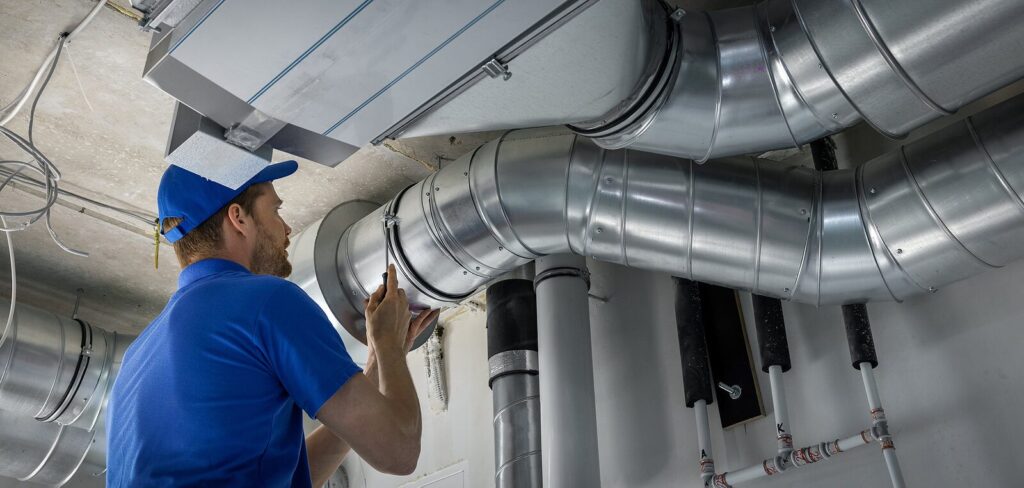As the world shifts towards sustainability, eco-conscious practices are becoming more essential in every industry—including the food service sector. For restaurant owners in the UAE, implementing sustainable practices is an opportunity to attract a more environmentally-aware clientele, reduce waste, and improve profitability. Partnering with local commercial cleaners can be an effective step in this direction, as they often offer eco-friendly cleaning solutions that align with sustainability goals. Here are some top tips for restaurant owners in the UAE looking to make their business more eco-friendly, including how local commercial cleaners can support these efforts.
Why Go Green in the Restaurant Industry?
Sustainability in the restaurant business is more than a trend; it’s a necessary shift in business practices that addresses both environmental and economic concerns. Going green can help reduce operational costs, enhance brand reputation, and contribute to a healthier planet.
1. Source Locally and Seasonally
One of the best ways to reduce a restaurant’s carbon footprint is by sourcing ingredients from local and seasonal suppliers.
Benefits of Local and Seasonal Sourcing
- Lower carbon footprint:
Locally sourced ingredients reduce the need for long-distance transportation. - Support for local farmers:
By sourcing locally, restaurants can support regional businesses, strengthening the local economy. - Improved freshness and flavor:
Seasonal ingredients tend to be fresher and more flavorful, enhancing the quality of dishes.
Tips for Sourcing Locally
- Establish partnerships with local farmers and suppliers.
- Plan menus around seasonal ingredients to reduce reliance on imported goods.
- Attend farmer’s markets to build relationships with vendors and discover unique, fresh produce.
2. Reduce, Reuse, Recycle
An effective waste management plan is key to becoming an eco-friendly restaurant. Implementing the principles of reducing, reusing, and recycling can significantly reduce the waste output of your business.
Practical Steps for Waste Reduction
- Minimize food waste:
Use compostable bins for leftover food or donate surplus food to local charities. - Invest in recyclable packaging:
Choose packaging materials that can be recycled, like paper or cardboard. - Reuse wherever possible:
Opt for washable cutlery, plates, and glasses instead of disposable items.
Ideas for Recycling Programs
- Create separate bins for recyclables like plastic, glass, and paper.
- Encourage customers to bring their own containers or use recyclable to-go containers.
- Partner with local recycling facilities to ensure waste is processed responsibly.
3. Implement Energy-Efficient Practices
Restaurants consume large amounts of energy daily, from cooking appliances to lighting and cooling systems. Adopting energy-efficient practices can lower utility bills and reduce environmental impact.
Energy-Saving Tips for Restaurants
- Switch to LED lighting:
LEDs use up to 75% less energy than traditional lighting and have a longer lifespan. - Use energy-efficient kitchen equipment:
Look for ENERGY STAR-rated appliances which consume less energy. - Turn off equipment when not in use:
Make it a habit to turn off kitchen equipment during slow periods or after hours.
Advantages of Energy Efficiency
- Reduced operational costs from lower energy bills.
- Less demand on the national grid, leading to a smaller environmental footprint.
- A quieter, cooler kitchen as energy-efficient equipment tends to generate less heat.
4. Opt for Sustainable Packaging
In the food industry, packaging waste contributes significantly to environmental pollution. Switching to sustainable packaging alternatives can help minimize this impact.
Sustainable Packaging Alternatives
- Compostable containers:
These break down naturally, reducing landfill waste. - Reusable options:
Encourage customers to bring reusable containers for takeaways. - Biodegradable cutlery:
Offer utensils made from bamboo or other plant-based materials instead of plastic.
Benefits of Sustainable Packaging
- Demonstrates your commitment to sustainability to eco-conscious customers.
- Reduces reliance on single-use plastics, which are harmful to the environment.
- Helps reduce waste collection and disposal costs over time.
5. Conserve Water in Daily Operations
Water is a valuable resource, and restaurants consume a significant amount of it. Implementing water-saving measures is essential for sustainability in the UAE’s desert climate.
Water Conservation Techniques
- Install low-flow faucets:
Reducing water pressure can save thousands of gallons annually. - Invest in water-efficient dishwashers:
Newer models consume less water without sacrificing performance. - Encourage staff to conserve water:
Train your team on best practices for reducing water waste, such as pre-soaking dishes instead of letting water run.
Advantages of Water Conservation
- Reduced water bills and operational costs.
- Conservation of a precious resource in an arid region.
- Positive brand image, as customers appreciate businesses that prioritize resource management.
6. Choose Environmentally Friendly Cleaning Products
Traditional cleaning chemicals can be harsh on the environment and harmful to human health. Switching to eco-friendly cleaning products is a simple yet impactful way to improve your restaurant’s sustainability.
Benefits of Eco-Friendly Cleaning Products
- Safer for employees and customers:
Non-toxic and biodegradable products reduce the risk of health issues. - Lower environmental impact:
Environmentally friendly products minimize water pollution and reduce the release of toxic chemicals into the ecosystem. - Improved air quality:
Green cleaning products often have fewer fumes and allergens, contributing to better indoor air quality.
Eco-Friendly Cleaning Tips
- Choose certified green cleaning products that are free from harmful chemicals.
- Use reusable cleaning cloths instead of disposable wipes.
- Work with a cleaning service that prioritizes eco-friendly practices.
7. Educate and Engage Your Staff
A sustainable restaurant requires the commitment of the entire team. By educating your employees about eco-conscious practices, you can create a workplace culture that values and supports sustainability.
Steps to Educate Staff on Sustainability
- Provide training sessions:
Teach employees about waste reduction, energy conservation, and other green practices. - Involve them in sustainability initiatives:
Encourage staff to share ideas on how the restaurant can improve its eco-friendly practices. - Recognize eco-conscious efforts:
Acknowledge employees who make an effort to support the restaurant’s sustainability goals.
8. Promote Your Eco-Friendly Efforts
Sharing your eco-conscious practices with customers can enhance your restaurant’s reputation and attract like-minded patrons.
Ways to Promote Your Sustainability Efforts
- Highlight sustainable practices on your menu or website.
- Share behind-the-scenes photos of your eco-friendly initiatives on social media.
- Partner with eco-conscious organizations to strengthen your sustainability image.
Benefits of Promoting Sustainability
- Builds brand loyalty among environmentally aware customers.
- Helps differentiate your restaurant from competitors.
- Inspires customers to adopt eco-friendly practices in their own lives.
Conclusion
Becoming an eco-conscious restaurant owner in the UAE involves thoughtful changes that benefit both the environment and your bottom line. By sourcing locally, reducing waste, conserving energy and water, and educating your team, you can create a sustainable business that resonates with today’s environmentally aware consumers. Embrace these changes not only to meet customer expectations but also to contribute positively to the global movement toward sustainability.
https://netblogz.com/a-deep-dive-into-dubais-grease-trap-cleaning-essentials/




